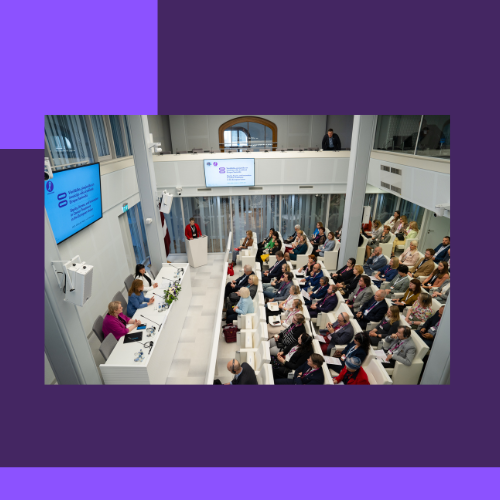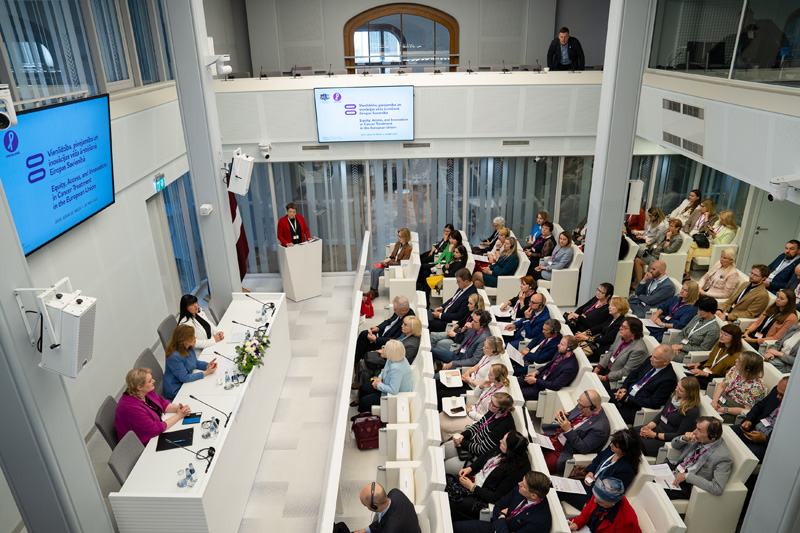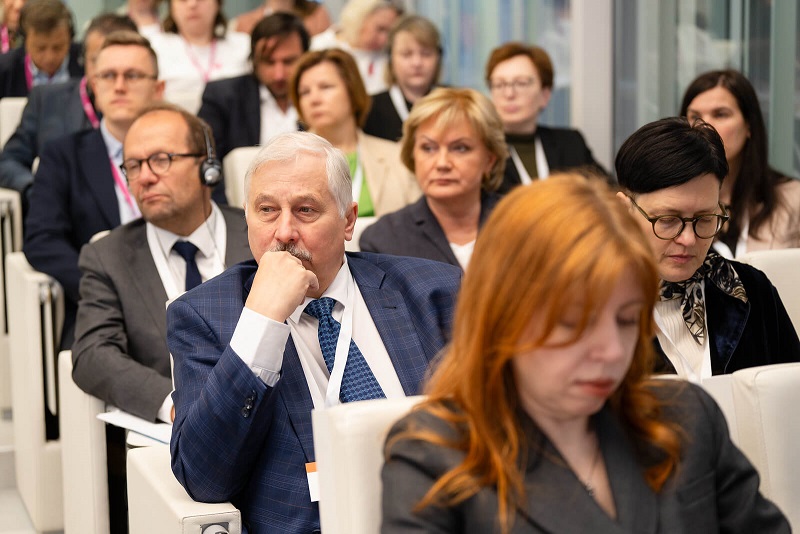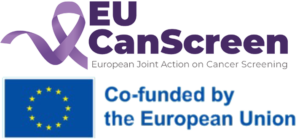Latvia, Riga, 20.05.2025
Equity and Innovation in Cancer Treatment: A Bridge Between Hope and Action in Europe

On Tuesday, 20 May, the European Congress of Patient Organisations, titled ‘Equality, Accessibility and Innovation in Cancer Care in the EU’, took place in Riga. Attendees, including patients, doctors, researchers and policymakers, emphasised that the current disparities in cancer care across Europe are unacceptable and that effective solutions are required to ensure equitable and just treatment for all patients, regardless of their place of residence.
Innovative medicines and technologies in oncology are now being developed faster than ever before. Immunotherapy, personalised medicine, gene engineering solutions, and other biotechnological breakthroughs enable the treatment of previously fatal diagnoses and significantly extend patient survival. One session of the congress was specifically devoted to innovation and research in cancer care. Experts presented leading European research projects and biomedical advances, and discussed how to accelerate the implementation of these innovations in practice.
Professor Marcis Leja, Director of the Institute of Clinical and Preventive Medicine of the University of Latvia, explained that innovations in oncology only make sense if they actually reach patients. He emphasised: ‘Innovation is the ability to create new treatment methods that are more effective than previous ones. Accessibility means enabling patients to use these new methods.”
When discussing the medicines that could soon be available to patients in Latvia, Professor Leja acknowledged that developing an innovative medicine is an extremely complex, time-consuming and costly process, with only a small proportion of studies ultimately proving successful. He pointed out that statistically, a new compound initiated in the first phase of clinical trials has only about a 12% chance of eventually gaining regulatory approval and being brought to market. This means that nine out of ten potential medicines are unsuccessful on the way to real-world application, despite the work and resources invested.
The average cost of developing an innovative medicine is around USD 2.6 billion, including pre-clinical research, several stages of clinical testing, registration procedures, and post-registration monitoring. The entire development cycle often takes more than ten years. Although recent biotechnological advances and the use of artificial intelligence in research have reduced this cycle by up to 500 days in some cases, it remains a slow and costly process. These facts demonstrate the importance of not only innovating, but also ensuring that innovations are effectively implemented in healthcare. This will prevent investments from ending up in the “clinical research graveyard” and enable patients to benefit as soon as possible.
One of the proposed solutions is coordination at EU level on intellectual property and procurement. This would reduce the cost of medicines and ensure equal access to innovative therapies across all EU Member States.
It is also important to note the crucial role of clinical trials in developing and providing access to innovative treatments. Professor Leja said that patients enrolled in clinical trials have access to cutting-edge therapies, high-quality medical care, and the early detection of potential health risks. These patients also contribute to medical progress by helping to improve future treatments. Therefore, clinical trials not only directly benefit the patients involved, but also contribute to the development of the healthcare system as a whole.
In recent years, the European Union has launched several strategic initiatives to reduce inequalities and accelerate the diffusion of innovation. The European Network of Comprehensive Cancer Centres (EUNetCCC) project involves 31 countries and 163 partner organisations, including leading cancer centres, universities, and institutions, with the aim of creating a single, comprehensive network of centres. This will ensure that 90% of European cancer patients can soon receive high-quality, innovation-driven care, regardless of where they live. In essence, this project is a practical embodiment of the European Cancer Plan, as it will establish common standards and accreditations for cancer centres, facilitate data sharing, compare treatment outcomes between countries, and accelerate the transfer of innovations from scientific research to clinical practice.
Another important European initiative focuses on the early detection of cancer. The EUCanScreen initiative, also known as the Joint Action on Cancer Screening, aims to ensure that high-quality cancer screening programmes are implemented sustainably in all EU Member States. This applies not only to traditional screenings for breast, cervical and bowel cancer, but also to new programmes recently recommended at EU level for the early detection of lung, prostate and stomach cancers in at-risk groups. The main aim of EUCanScreen is to reduce the burden of cancer and achieve equitable access to screening, ensuring that everyone, regardless of where they live, has the opportunity to detect cancer early when it can still be successfully treated. The ambitious project is being coordinated by the Institute of Clinical and Preventive Medicine of the University of Latvia in collaboration with Latvian expert teams (the Centre for Disease Prevention and Control of Latvia, Riga Stradins University and Pauls Stradins Clinical University Hospital) and partners in 29 countries.
It should be noted that European cooperation also takes place at a regional level. At the Congress, Professor Leja mentioned the Nordic-Baltic Cancer Centre Network initiative, which aims to develop partnerships between existing and future cancer centres in the region and coordinated participation in wider European networks. Small countries (including Latvia, Estonia, Lithuania and Slovenia) recognise that limited resources present common challenges in providing high-quality cancer care. Solutions are therefore being sought to overcome these challenges together, from the shortage of specialists to the constraints of scale affecting the uptake of new technologies. Such regional and cross-border cooperation enables the sharing of experiences, the creation of shared resource centres (e.g. shared training or data platforms), and the advocacy of the needs of Eastern Europe at the EU level.
The Congress revealed that a significant period of change is underway in the field of European oncology care. Patients are forming organisations and collaborating with doctors and scientists to highlight specific issues and propose solutions. However, politicians are becoming more receptive: there is a growing recognition that public health, and in particular the fight against cancer, is not just a national priority, but a European one. However, it is important to bear in mind that innovation without access only increases inequalities, while equality without innovation cannot ensure the best possible outcome for all patients. Europe must therefore promote the creation of new treatments and ensure they reach everyone quickly and fairly. After all, cancer knows no borders or nationality, which is why the fight against cancer must be borderless.
#EUCanScreen



Subscribe to our newsletter to get news and updates.
Subscribe to our newsletter to get news and updates.

The general objective of EUCanScreen is to assure sustainable implementation of high-quality screening for breast, cervical and colorectal cancers, as well as implementation of the recently recommended screening programs – for lung, prostate and gastric cancers. EUCanScreen will facilitate the reduction of cancer burden and achieving equity across the EU.
This project has received funding from the European Union’s EU4HEALTH Programme under the Grant Agreement no 101162959










